12 herbal remedies for hot flushes, insomnia and brain fog
If you’re a middle-aged woman, you’ve most likely experienced symptoms of hormonal shifts. There are changes to your menstrual cycle – lighter or, in some cases heavier bleeds, longer between periods and skipped cycles. How about those hot flushes appearing at inconvenient times? Fun, right?
Some perimenopausal symptoms are sneaky. You’re not sure if it’s even a thing, but you know you’re not feeling like yourself.
Are you getting upset at the slightest thing, or feeling down and unmotivated when you’re usually upbeat? Forgetting what you came into the room to do? Perhaps deep, refreshing sleep seems like a distant dream and your libido has checked out and not left a forwarding address.
There is help at hand. Before there was hormone replacement therapy, there was herbal medicine. For thousands of years, women have relied on plants to support them in this natural life-stage transition. There’s a good reason for this: herbs are readily available, affordable, have a low-risk of side effects, and most importantly they work.
12 herbs for perimenopause symptoms
Following are a selection of herbs I find useful for the common menopausal symptoms of hot flushes, insomnia, anxiety and brain fog. I’ve selected these as they work well as herbal teas (infusions), making them an accessible and affordable option.
(To get the low down on making therapeutic herbal teas check out this post)
Herbs to reduce menopausal hot flushes
Sage
This culinary herb is the ultimate hot flush vanquisher, but it’s essential to drink it cold. Warm sage tea has the opposite effect. Sage shouldn’t need to be used continuously. I find most women can reduce hot flushes using sage within 1-2 weeks. If flushes return at a later point in the perimenopause transition just use it as you need to.
Sage combines beautifully with lemon balm or peppermint for extra cooling and relaxing properties.
Sage does have a strong taste, so add a little honey or stevia leaf to sweeten it up.
Black cohosh
Possibly the most well-known menopause herb. Often mistakenly referred to as an oestrogen herb, Black cohosh does not contain oestrogen. It is thought to be able to modify estrogen receptors weakly. Black cohosh may also act on the receptors for the “feel good” neurotransmitter, serotonin. Serotonin fluctuations are believed to trigger hot flushes.
Black cohosh is a menopausal multi-tasker – along with hot flushes and mood; it also helps reduce the hip and lower back pain that often emerge in perimenopause.
Avoid this herb if you have hormone-dependent cancer or liver disease.
White peony
Peony root is a nourishing root medicine and all-round female tonic. It supports the adrenals to help balance the stress response. Being stressed tends to exacerbate hot flushes. I’ve found it to have a particular benefit in night sweats when combined with lemon balm.
Red Clover
Red clover is a phytoestrogen and member of the legume family. The isoflavones found in red clover are more bioavailable than soy. It can weakly stimulate the beta estrogen receptors and help reduce estrogen fluctuations that trigger hot flushes.
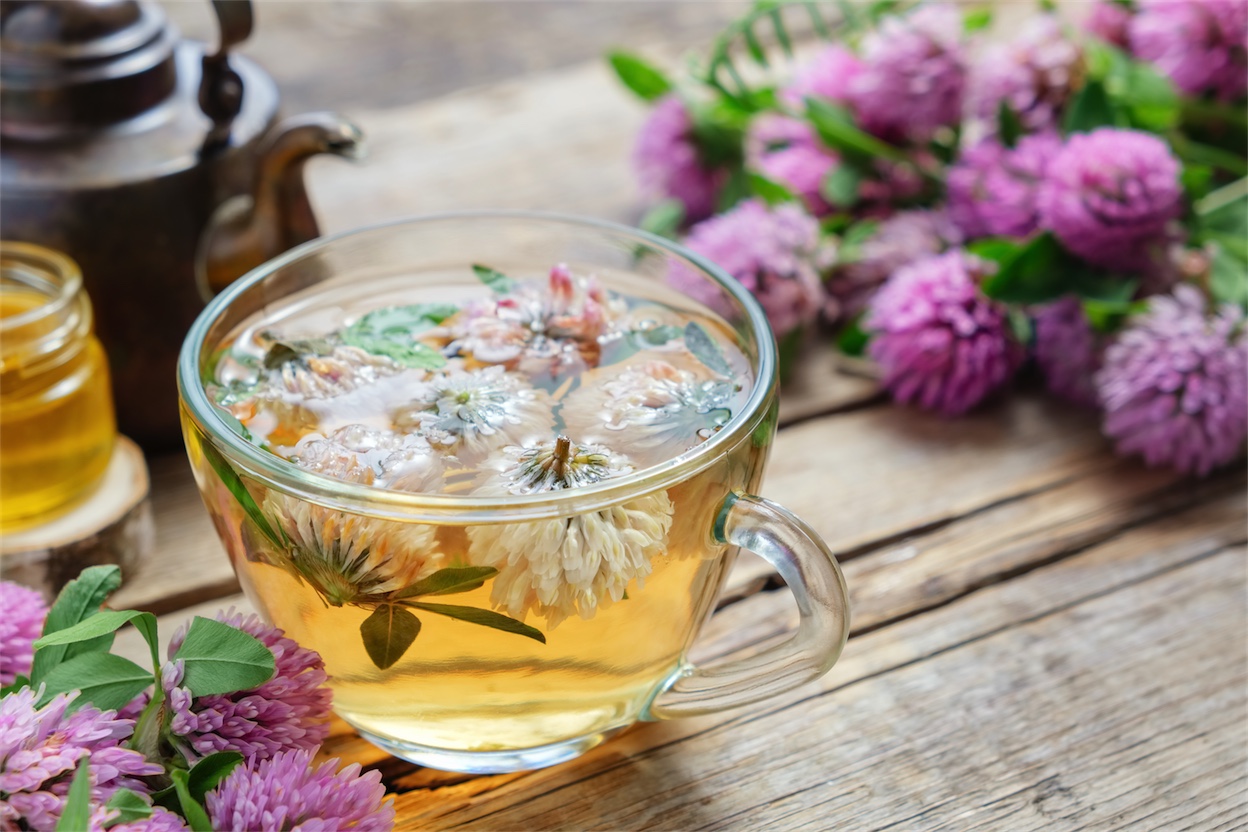
Red clover
Herbs to help menopausal sleep issues
Herbal sedatives are not the same as pharmaceutical sleeping pills. Herbs gently relax the nervous system and can take a few nights to reach their full potential. The upside is they don’t have the side effects of sleeping pills.
Lemon balm
Lemon balm is an easy to grow member of the mint family and, as the name suggests it has a delicate lemon flavour. The younger leaves can be used fresh in salads or to make a tasty tea.
Lemon balm is useful in many kinds of sleep issues as it supports the relaxing neurotransmitter, GABA. The cooling nature of lemon balm is particularly valuable for menopause where sleep is interrupted by hot flushes or just a general feeling of “running too hot”.
This soothing nerve tonic suits women who feel overwhelmed, wound up and cope with comfort eating. Lemon balm also relaxes the nerves in the digestive system so if you’re also experiencing bloating; lemon balm is your friend.
Passionflower
I refer to passionflower as a “herbal hug” because it can gently calm anxiety and reduce high levels of stress hormones such as cortisol. It’s not sedating so can be used during the day to promote calm and help you be more relaxed to allow sleep to come naturally at night.
Valerian
Valerian has a distinctive aroma. Some say it smells like wet dog! Don’t let that put you off because it is a very effective herbal sedative and muscle relaxant, especially with tension-type headaches. It activates the receptors for GABA, serotonin and adenosine which are neurotransmitters controlling sleep.
Valerian can help you get the restorative slow-wave sleep that leaves you feeling refreshed and full of energy.
A few people find valerian stimulating, but combining valerian with either hops or lemon balm reduces this effect.
Hops
Hops is a phytoestrogen and reduces sleep-disrupting night sweats. It also contains valerianic acid similar to what’s found in valerian. These compounds are sedating and relax tense muscles.
Avoid hops if you have hormone-dependent breast cancer.
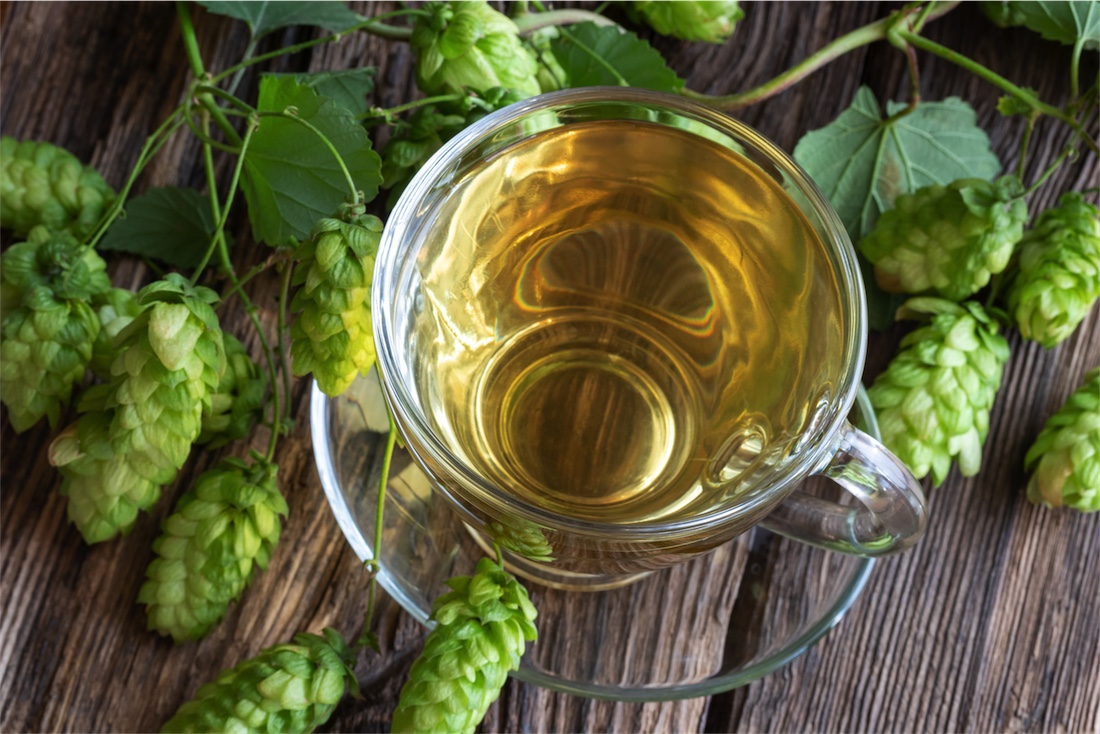
Hops
Herbs to help menopausal mood issues and brain fog
Oestrogen helps memory and learning, plus it also supports the “happy hormone” serotonin. When oestrogen levels drop in perimenopause, many women report feeling low mood, increasingly anxious and brain fog. Antidepressants are often prescribed as a first-line medical treatment; however, many women are reluctant to take them.
Herbal medicine has good evidence supporting mild to moderate depression and anxiety. Ongoing or severe mood issues should always include medical treatment as part of your care plan.
Motherwort
Motherwort is a diffusive and relaxing nervous system tonic. It decreases nervous irritability and is useful where anxiety causes a racing heartbeat or palpitations. Always rule out other causes of heart palpitations with your medical professional first though.
St Johns wort
St John’s wort is a well-known herb for the treatment of mild to moderate depression, and numerous scientific studies support its effectiveness. For perimenopause symptoms, it combines beautifully with Black cohosh. I also find it helpful in sleep-related issues and for women who have become hypersensitive both physically and emotionally.
Due to the risk of “serotonin syndrome”, don’t combine St John’s wort with pharmaceutical antidepressants.
Holy basil
Also known as Tulsi, Holy basil is one of my favourite teas to drink during the day when I need to stay focused. In India, it is valued for its ability to reduce stress and improve memory. It also helps to balance out blood sugar levels. The high levels of antioxidants in Tulsi protect against age-related memory decline.
Lavender
A common garden herb, lavender has a distinctive smell that you either love or loathe. Lavender is antidepressant, reduces irritability and increases sleep duration.
It has a strong taste and combines best in small amounts with other herbs.
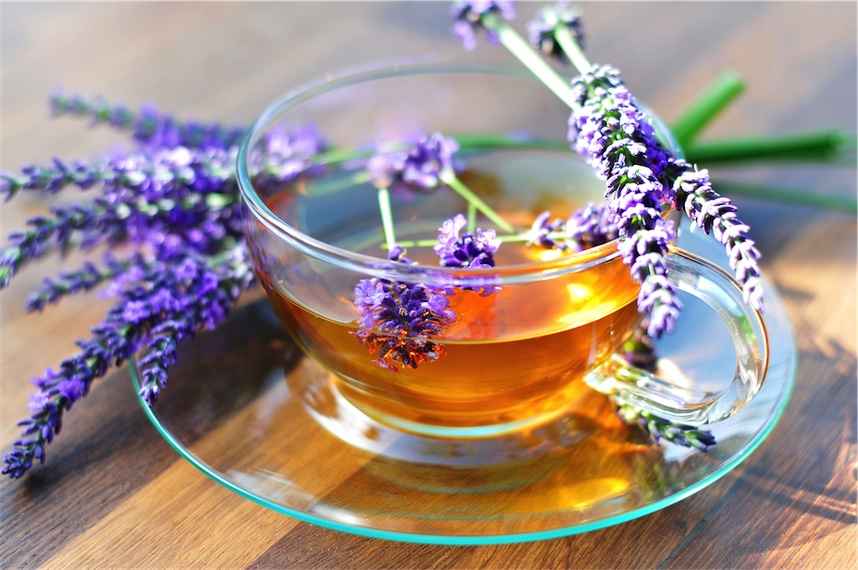
Lavender tea
These 12 herbs are some of the most common I use in my Naturopathy practice. However, there are many more wonderful plant medicines for perimenopausal health. I have chosen these as they are widely available and are palatable when made into a tea. If herbal tea is not your thing, these herbs are also available in liquid tincture form from your local herbalist/naturopath.
Be herbally safe
The herbs mentioned above all have an excellent safety profile. If you have a medical condition or are taking pharmaceutical medication, I recommend you consult with a health care practitioner to determine if these herbs are suitable for your circumstances.
How long will I need to take them for?
When taking herbs to support a perimenopause transition, I find the majority of my clients don’t need to take them ongoing. They use them to help get over a hump and then a nutritious diet and healthy lifestyle habits support ongoing wellness and vitality.
Have you used herbs to manage your perimenopause symptoms? What did you use and how did it go? Let me know in the comments.
You might also like:

Need help with
Norelle Hentschel is an experienced Naturopath with a clinic in Stones Corner, South East Brisbane and also offers Telehealth consults Australia wide. She enjoys supporting her clients to reach their health goals.
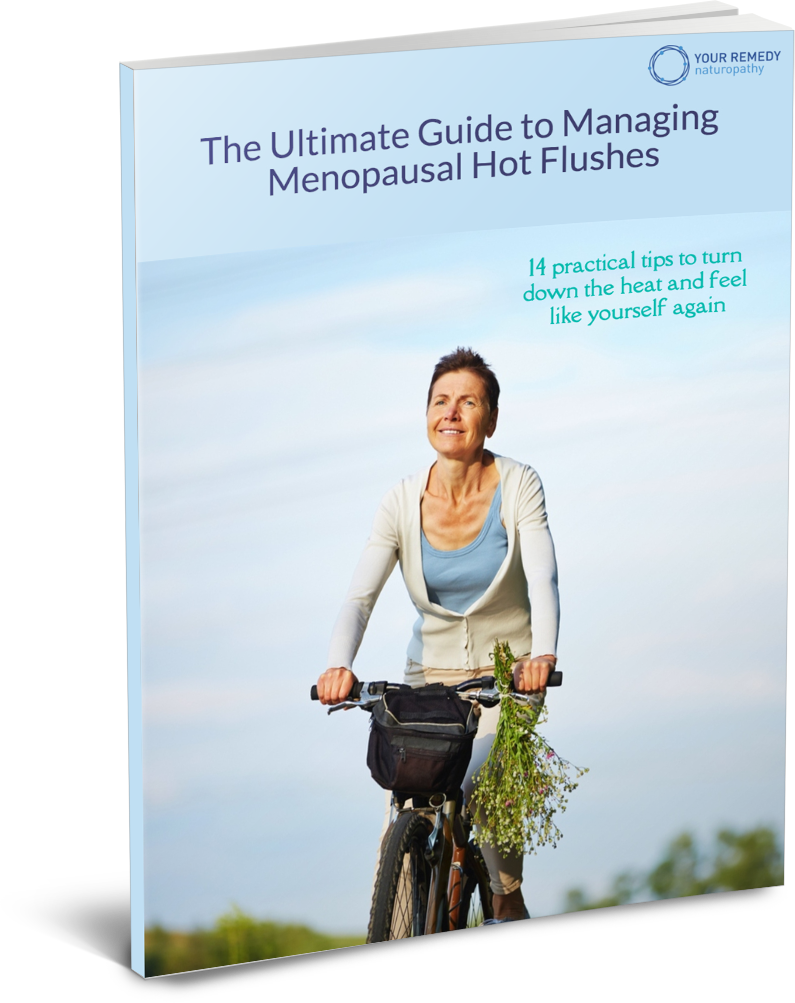

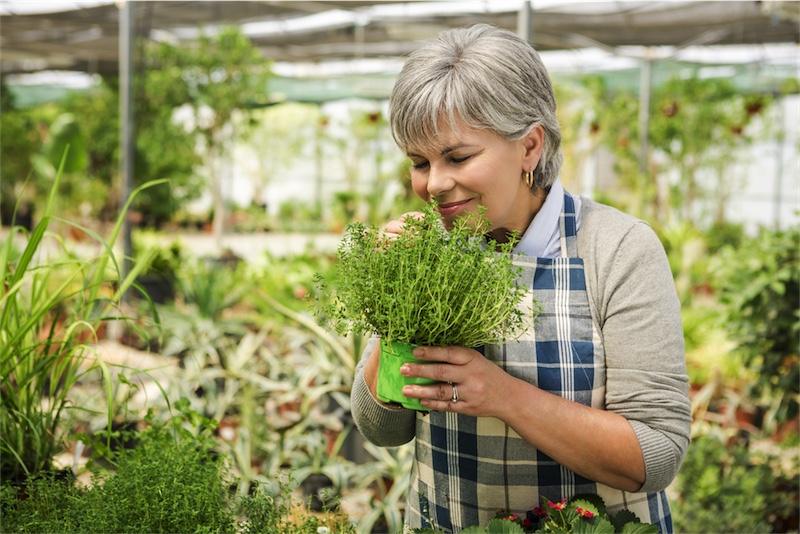
Thanks